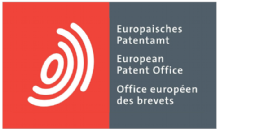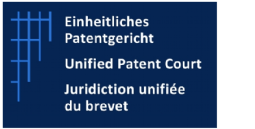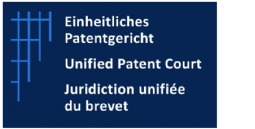This edition features updates from: The European Patent Office (EPO) and the Unified Patent Court (UPC).
The Irides Weekly Update is our round-up of patent litigation news highlights from around the world.

EPO
Enlarged Board of Appeal rejects petitions for review from plausibility cases.
The EPO has been applying the decision in G2/21 for over 2 years now. However, its application has not been plain sailing and this year two cases which applied G2/21 petitioned for review to the Enlarged Board of Appeal (EBA). Petitions for review are uncommon and request the EBA to review a decision of the Technical Board of Appeal (TBA) on the basis of a procedural error, for example a fundamental violation of the right to be heard.
The first of the petitions from the application of G2/21 arose from T 116/18, the case which made the G2/21 referral. The opponent, Syngenta, filed a petition for review on the basis that their right to be heard had been violated as they did not have opportunity to comment on aspects of the application of G2/21 at the TBA. This petition was recently rejected by the Enlarged Board of Appeal as being unallowable during short oral proceedings held on 29th August 2025.
In the petition for review R2/25, which stems from the case T 314/20, the patentee filed a petition, including on the basis of a breach of the right to be heard. The EBA has issued a preliminary opinion reviewing the minutes from the TBA as well as the objections raised in the petition and concluded that the petition is likely to be rejected. Unless the request for an oral hearing is withdrawn, the petition will be decided at a hearing is scheduled for 29th September 2025.

UPC
Munich Local Division grants qualified injunction to Brita in relation to sale of AquaShield’s sale of water filter cartridges.
[UPC_CFI_248/2024]
On 22 August 2025, the Munich Local Division handed down a decision upholding EP 2 387 547 (EP 547) in amended form. The Local Division found that the defendants’ (AquaShield) sale of replacement water filter cartridges indirectly infringed EP 547 in its amended form. A qualified injunction was thus granted to Brita requiring AquaShield to include warning notices setting out that its cartridges should not be used with some Brita products.
Background
Brita owns EP 547 which relates to a valve actuating device for a valve located in the outlet opening of a liquid container of a liquid treatment device. AquaShield was involved in the sale of replacement water filter cartridges which were compatible with Brita’s water jugs. Brita alleged that the sale of these cartridges infringed several claims of the patent both directly and indirectly.
Construction and validity
The Local Division deemed that claim 1 of EP 547, as granted, only protected a valve actuating device, not an overall device consisting of a valve actuating device and a valve. Placing emphasis on the word ‘for’ in the claim language, it was considered that the mention of the valve in claim 1 was merely a statement of purpose (“valve actuating device for a valve”). Based on this construction, only the claimed device as opposed to the device for a particular purpose was relevant for the validity assessment, and claim 1 of EP 547 was deemed to be anticipated by the prior art.
Brita had applied to amend its patent in line with various auxiliary requests. The Local Division held that in an auxiliary request containing a closed claim set each of the claims in the claim set must be valid. On this basis, only auxiliary request 16 was held to be valid.
Infringement and exhaustion
Claim 1 of auxiliary request 16 related to a liquid treatment device with a liquid treatment cartridge. Therefore, the claim for infringement in relation to AquaShield’s cartridges was limited to indirect infringement only. AquaShield’s product was objectively suitable for use in line with the claimed invention as it was designed in such a way that direct use of the patented teaching would be possible by the user. Further, the subjective elements of indirect infringement were present as AquaShield was aware that its product was suitable and intended for use in line with the invention. This was evidenced by recommendations on the packing of its cartridges which cited the compatibility of the product with Brita’s water filter systems.
Further, AquaShield’s product was also deemed to be a means that related to an essential element of the invention protected by the patent. The Local Division stated that this can be assumed to be the case if the means is capable of interacting functionally with one or more features of the patent claim in achieving the patented inventive concept. In this case, the liquid treatment cartridge was mentioned in claim 1 of auxiliary request 16, did not play a subordinate role in the context of the patented invention, and there were no indications that it should nevertheless be regarded as non-essential.
Finally, the Local Division considered AquaShield’s defence of exhaustion. This was assessed under Art. 29 UPCA as opposed to under national law. It was noted that the intended use of a patent-protected product also includes usual maintenance of the product. However, this does not extend to any measures that result in the reproduction of a patented product, which would be considered manufacture. Although it was noted that a factor in the assessment was whether the replacement of the part in question can normally be expected during the product’s lifetime, the situation was deemed to be different in exceptional cases in which the technical effect of the invention was embodied in the replacement part. This issue did not need to be decided in the present case. It was found that Brita’s product did not itself have all the features of claim 1 of auxiliary request 16 so the defence of exhaustion necessarily failed.
Qualified injunction
The Local Division found that in the case of an indirect infringement, if a product can used without infringing the patent, as in the present case, only a limited prohibition is justified. In these circumstances, a limited injunction should aim to ensure that trade in the product outside the scope of the patent remains unaffected, whilst excluding infringing use with sufficient certainty. Suitable measures may include warnings to customers not to act in accordance with the patented teaching, as well as a contractual cease and desist agreement with the customer which may be linked to the payment of a contractual penalty in the event of a breach.
In the present case, the Local Division noted that AquaShield’s product was sold to both commercial and private customers. With regard to commercial customers, the Local Division ruled that a warning notice should set out that these customers may not offer and supply AquaShield’s product for the purpose of using the invention without the consent of Brita. For private customers, it was ruled that simplified wording must be included on AquaShield’s product stating that it should not be used in certain Brita branded water containers. The Local Division noted that there were no circumstances presented that would cause it to doubt that commercial and private customers would heed these warnings.
The Local Division refused to order a contractual cease and desist agreement with a penalty clause in favour of Brita as it was not deemed to be justified in the present case, because Brita had not substantiated why a warning notice would be insufficient.
Finally, the Local Division rejected Brita’s argument that, due to the reputation and popularity of Brita’s products, infringement would be inevitable if AquaShield’s cartridges were to be sold. The Local Division asserted that AquaShield could not be held responsible for this. According to Article 26 UPCA, AquaShield could only be held liable if, at the time of sale of the cartridges, they knew or should have known that customers would use the cartridges in accordance with EP 547. The warning notice on the package was deemed to clearly point out that AquaShield’s cartridge should not be used in Brita’s product, and it was noted that there were water filter containers on the market from other brands.
Security and costs
An order for security for enforcement was deemed to be at the discretion of the Local Division. Factors such as the financial situation of the claimant had to be taken into account. AquaShield had not presented any reasons that would justify making enforcement dependent on the provision for security from Brita.
Finally, the costs of the infringement action were ordered to be split 50/50 between Brita and AquaShield. However, given that AquaShield had prevailed in the revocation action on the granted patent, the Local Division ordered Brita to bear 90% of the costs of the revocation action.

UPC
Düsseldorf Local Division grants preliminary injunction and related provisional measures after the Defendant chose not to contest.
[UPC_CFI_449/2025]
On 3 September 2025, the Düsseldorf Local Division handed down its decision in an application brought by Hewlett Packard (HP) who sought a preliminary injunction and related relief against two defendants - Zhuhai ouguan Electronic Technology Co., Ltd, based in China (Defendant 1), and Andreas Rentmeister e.K., based in Germany (Defendant 2)—for alleged infringement of two European patents (EP 2 826 630 B1 and EP 3 530 469 B1), both concerning ink cartridges for inkjet printers.
The Court noted that service to Defendant 1 was not completed, but Defendant 2 had acknowledged the proceedings and reached a settlement with HP. Defendant 2 explicitly stated it would not contest the application and agreed to a decision by default. HP withdrew one motion and requested a decision by default on the remaining claims.
However, the Court clarified that under the RoP, a regular order - not a decision by default - is appropriate when a defendant chooses not to contest. Although HP requested a decision by default, the Court clarified that such decisions are not applicable under r. 205 RoP when a defendant is informed and chooses not to contest. Instead, a regular order is appropriate under r. 209.1(a) RoP, allowing the Court to decide based on the applicant’s submissions. This approach ensures that defendants who decline to respond do not benefit from procedural advantages such as the ability to set aside a default judgment. The Court issued a regular preliminary injunction order against Defendant 2 based solely on HP’s submissions.
The Court conducted a feature-by-feature comparison of the challenged cartridges with the claims of both patents. It concluded that the cartridges directly and literally implemented all elements of claim 1 in both patents, including structural features. The analysis was supported by visual evidence and technical descriptions. The Court found no credible challenge to the validity of either patent. Neither had been subject to opposition or revocation proceedings, and Defendant 2 had not raised any arguments. The granting process had addressed and rejected third-party observations. Therefore, the patents were considered valid with a sufficient degree of certainty.
The Court also found urgency and necessity for provisional measures. HP had acted promptly upon discovering the alleged infringement and demonstrated that continued sales of the infringing cartridges would cause irreparable harm, including loss of market share, price erosion, and reputational damage.

/Passle/5f3d6e345354880e28b1fb63/MediaLibrary/Images/2025-09-29-13-48-10-128-68da8e1af6347a2c4b96de4e.png)
/Passle/5f3d6e345354880e28b1fb63/MediaLibrary/Images/2025-07-10-13-52-35-189-686fc5a39f23a993118ba1a0.png)
/Passle/5f3d6e345354880e28b1fb63/SearchServiceImages/2026-02-20-09-54-03-745-69982f3bff07facd13d88f69.jpg)
/Passle/5f3d6e345354880e28b1fb63/SearchServiceImages/2026-02-18-09-25-14-317-6995857a406a38553e720e5d.jpg)